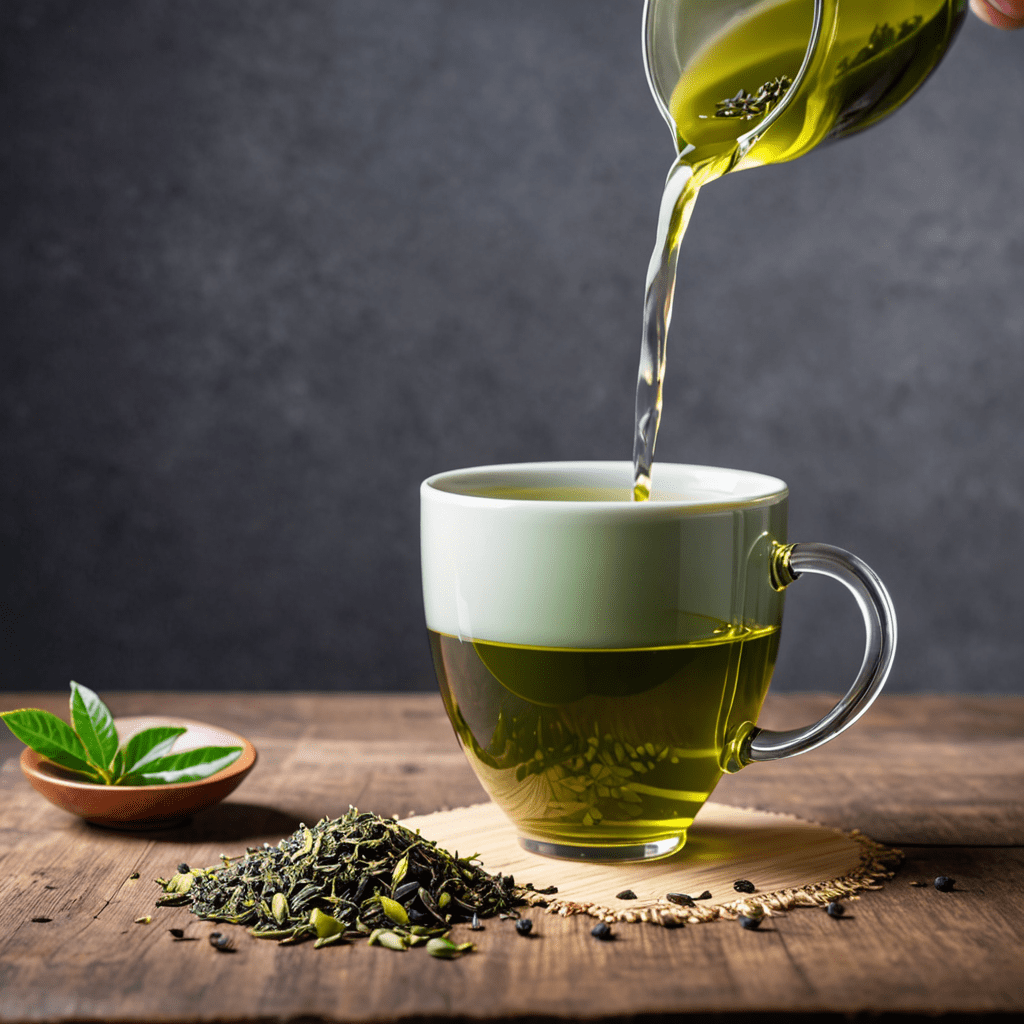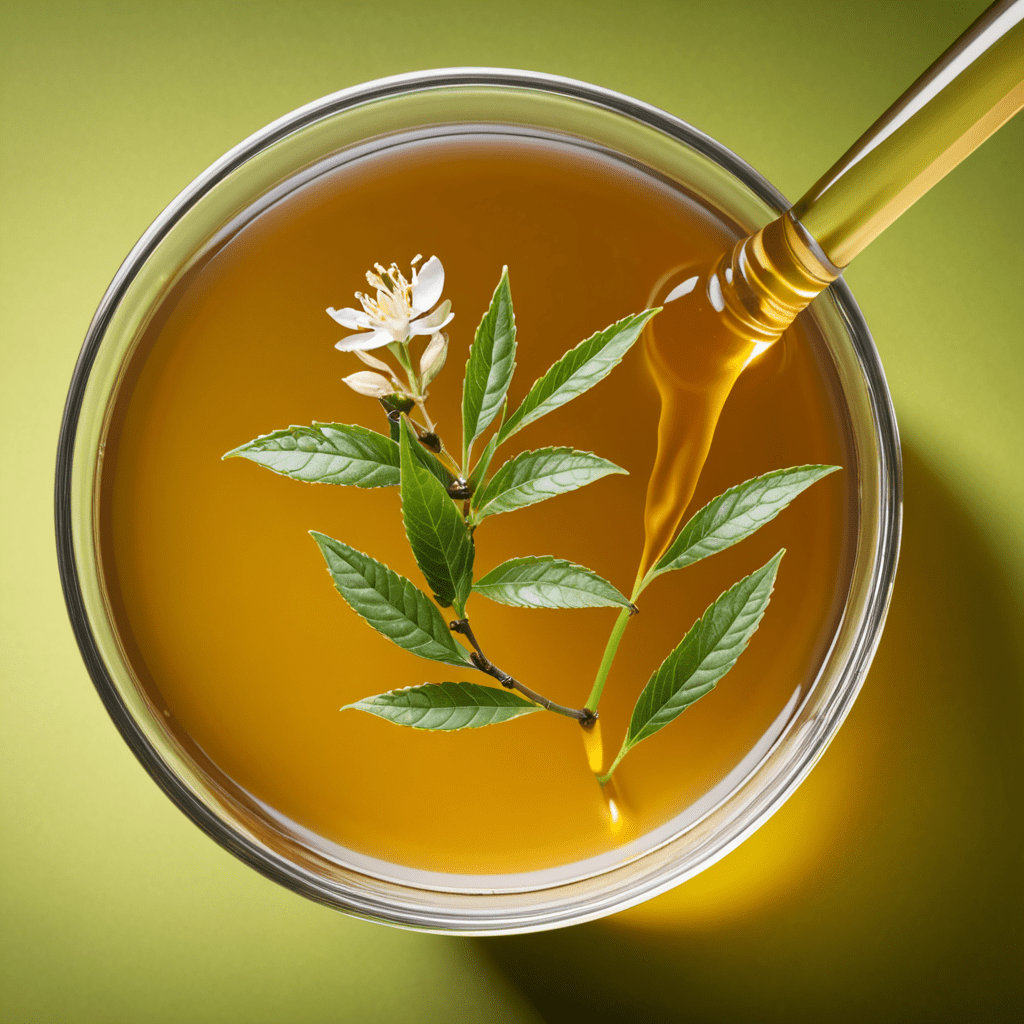
Discover the Surprising Reason Green Tea is Off-Limits Before Surgery
Green tea has gained popularity worldwide for its numerous health benefits and invigorating properties. However, there is a surprising reason why medical professionals advise against consuming green tea before surgery. In this article, we will discuss why green tea is off-limits before surgery and provide valuable insights into the potential risks it poses. Let’s explore the science behind this advice to ensure a safe and successful surgical experience.
Understanding the Components of Green Tea
Green tea is derived from the leaves of the Camellia sinensis plant and is known for its rich antioxidant profile, which includes polyphenols like flavonoids and catechins. These antioxidants have been linked to various health benefits such as reducing inflammation, improving heart health, and aiding in weight loss.
The Impact of Caffeine on Surgery
One of the primary reasons why green tea is discouraged before surgery is its caffeine content. While green tea contains less caffeine compared to coffee, it still contains enough to potentially pose risks during surgical procedures. Caffeine is a diuretic and a stimulant that can affect heart rate, blood pressure, and overall circulation.
During surgery, it is crucial to maintain stable heart rate and blood pressure levels, as fluctuations can increase the risk of complications. Consuming caffeinated beverages like green tea before surgery can interfere with the body’s natural responses and potentially complicate the anesthesia process.
Interference with Anesthesia
Anesthesia is a critical part of any surgical procedure, ensuring that the patient remains unconscious and pain-free throughout. Anesthetics work by depressing the central nervous system, slowing down brain activity, and relaxing muscles. However, caffeine can interfere with these effects and may counteract the desired outcomes of anesthesia.
When caffeine is consumed, it stimulates the central nervous system, leading to increased alertness and responsiveness. This can make it more difficult for anesthetics to induce and maintain the desired level of unconsciousness, potentially compromising the safety and effectiveness of the surgery.
Blood Thinners in Green Tea
Green tea contains natural substances known as anticoagulants, which help prevent blood clot formation. While this property can be beneficial in certain situations, it can pose risks during surgery. Surgical procedures often involve incisions, which can lead to bleeding. The anticoagulant properties of green tea can increase the risk of excessive bleeding during and after surgery.
To minimize the risk of bleeding complications, medical professionals advise patients to avoid any substances that may have blood-thinning effects, including green tea, in the days leading up to the surgery.
Gastrointestinal Disturbances
The caffeine content in green tea can also cause gastrointestinal disturbances, such as acid reflux or an upset stomach. These symptoms can be uncomfortable for patients, especially when they are preparing for surgery and need to maintain optimal health conditions.
To ensure a smooth surgical experience, it is essential to minimize any potential disturbances to the gastrointestinal system. Therefore, medical professionals recommend avoiding green tea and other caffeinated beverages before surgery.
Frequently Asked Questions (FAQ)
Q: Can I drink other types of tea before surgery?
A: While green tea is specifically discouraged due to its caffeine content and potential interactions with anesthesia, it’s generally advisable to avoid all caffeinated beverages before surgery. This includes black tea, oolong tea, and certain herbal teas that may also contain caffeine.
Q: How long before surgery should I stop drinking green tea?
A: Medical professionals typically recommend avoiding green tea and other caffeinated beverages for at least 24 to 48 hours before surgery. However, it is always best to consult with your surgeon or anesthesiologist for specific instructions tailored to your individual needs.
Q: Are there any alternatives to green tea that I can drink before surgery?
A: Yes, there are plenty of alternatives to green tea that do not contain caffeine or have any potential interactions with anesthesia. Herbal teas like chamomile, peppermint, or ginger can be excellent choices, as they are caffeine-free and have soothing properties that may help calm pre-surgical nerves.
Q: What are the risks of consuming green tea before surgery?
A: The risks of consuming green tea before surgery primarily include potential interference with anesthesia, increased heart rate and blood pressure, gastrointestinal disturbances, and increased bleeding during and after surgery.
Q: Will drinking green tea after surgery have any adverse effects?
A: While the focus of this article is on avoiding green tea before surgery, it is generally safe to consume green tea after surgery once you have fully recovered and received clearance from your healthcare provider. However, it is always best to consult with your healthcare team for individualized recommendations based on your specific condition and recovery process.
Q: How can I manage my cravings for green tea before surgery?
A: If you are craving a warm and comforting beverage before surgery, there are several options available. Opt for caffeine-free herbal teas, hot water with lemon, or warm broth to satisfy your cravings without compromising your surgical outcome.
In conclusion, it is crucial to listen to the recommendations of medical professionals and avoid consuming green tea before surgery. The caffeine content, potential interference with anesthesia, blood-thinning properties, and gastrointestinal disturbances all contribute to the risks associated with green tea consumption before surgical procedures. By adhering to these precautions, you can help ensure a smooth and safe surgical experience.


